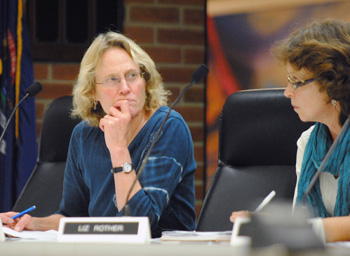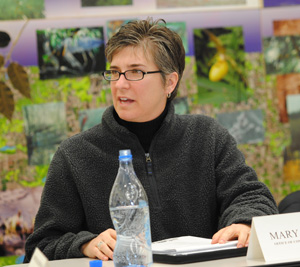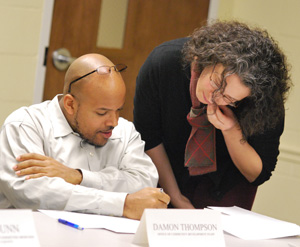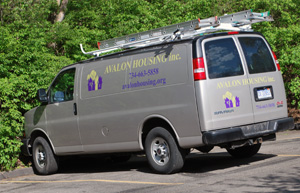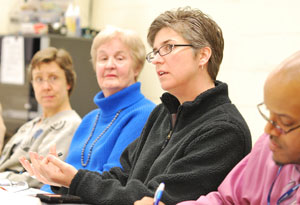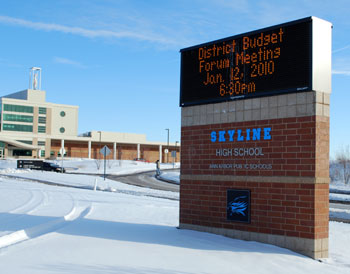Ann Arbor city council special meeting (March 16, 2011): At a special meeting that had been announced at a city council work session two days earlier, the Ann Arbor city council voted to authorize signing a contract with the U.S. Department of Transportation related to a $13.9 million TIGER (Transportation Investment Generating Economic Recovery) II grant.
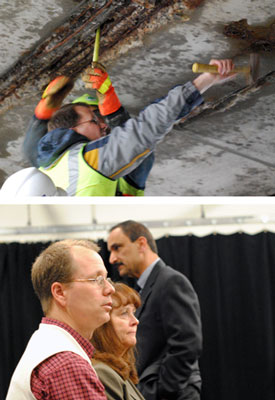
Top: File photo from March 2009 of city engineer Mike Nearing as he gives the East Stadium bridge a hammer sounding test. Bottom: At a March 16, 2011 special meeting, Nearing and other city staff were on hand to answer questions. To Nearing's left is Sue McCormick, public services area administrator. Standing is Homayoon Pirooz, head of project management. (Photos by the writer.)
Announcement of the grant’s award to the city for the reconstruction of the East Stadium Boulevard bridges had come in October 2010. The bridge over State Street is in such poor condition that its southern two lanes were intentionally demolished in November 2009.
The council’s special session reflected an urgency to complete the contract. The council has a regular meeting scheduled next Monday, March 21 – just five calendar days after the special session – when the council could also have taken the necessary vote on the contract.
The urgency stemmed from the March 18 expiration of a continuing resolution (CR) passed by Congress and signed into law by President Barack Obama on March 2. A CR is a mechanism for keeping the federal government operating, based on the previous fiscal year’s budget assumptions, until formal appropriations bills are passed by Congress. The federal budget procedure is essentially a two-step process in which the budget levels for each department are first set and signed into law, followed by appropriations bills that authorize spending the budgeted amounts.
Based on proposals brought forward in February by U.S. House Republicans, but ultimately not enacted, the current two-week CR would have eliminated TIGER II grants. And based on the political posturing that took place over the current CR, the Ann Arbor city council was taking the step of signing the contract as soon as it could, to allow the U.S. Federal Highway Administration to “obligate” the TIGER II grant funds for the bridges project under the current CR – as a hedge against the possibility that a subsequent CR might cut TIGER II funding.
Although the grant had previously been awarded, the funds are not secured until they are actually obligated, a process that includes various requirements – among them, signing the contract that the council authorized at its special session.
The council’s action enabled obligation of TIGER II funds only for the right-of-way phase of the project – which amounts to around $800,000. According to Congressman John Dingell’s office staff, they’d been informed by the Dept. of Transportation on March 15 that the $800,000 for the initial phase had just been obligated.
Based on the city of Ann Arbor’s timeline, obligation of the $13.1 million in TIGER II funds for the construction phase is expected in May. Construction on the project, which is estimated to cost a total of $23 million, is tentatively scheduled for October 2011.
A public information meeting on the status of the project is scheduled for Wednesday, March 23 from 6:30-8 p.m. at the Pioneer High School cafeteria. Pioneer is located at 601 W. Stadium – just down the street from the bridges. [Full Story]




